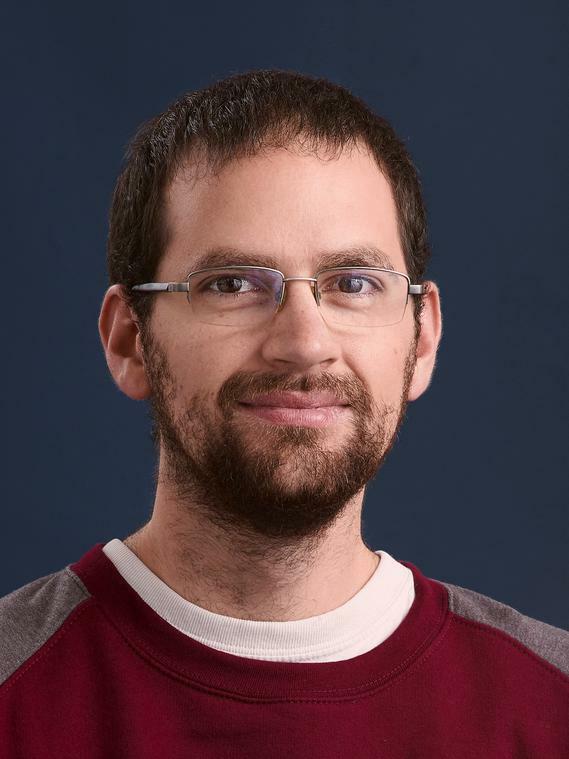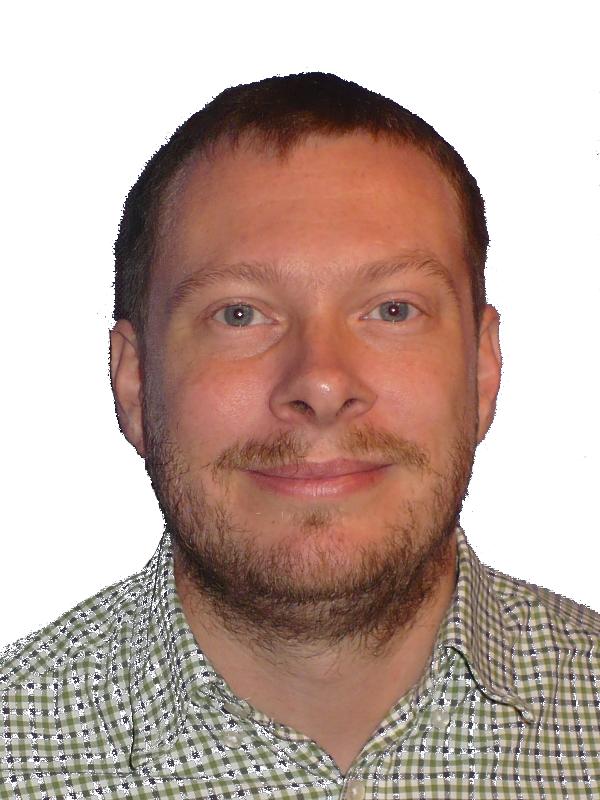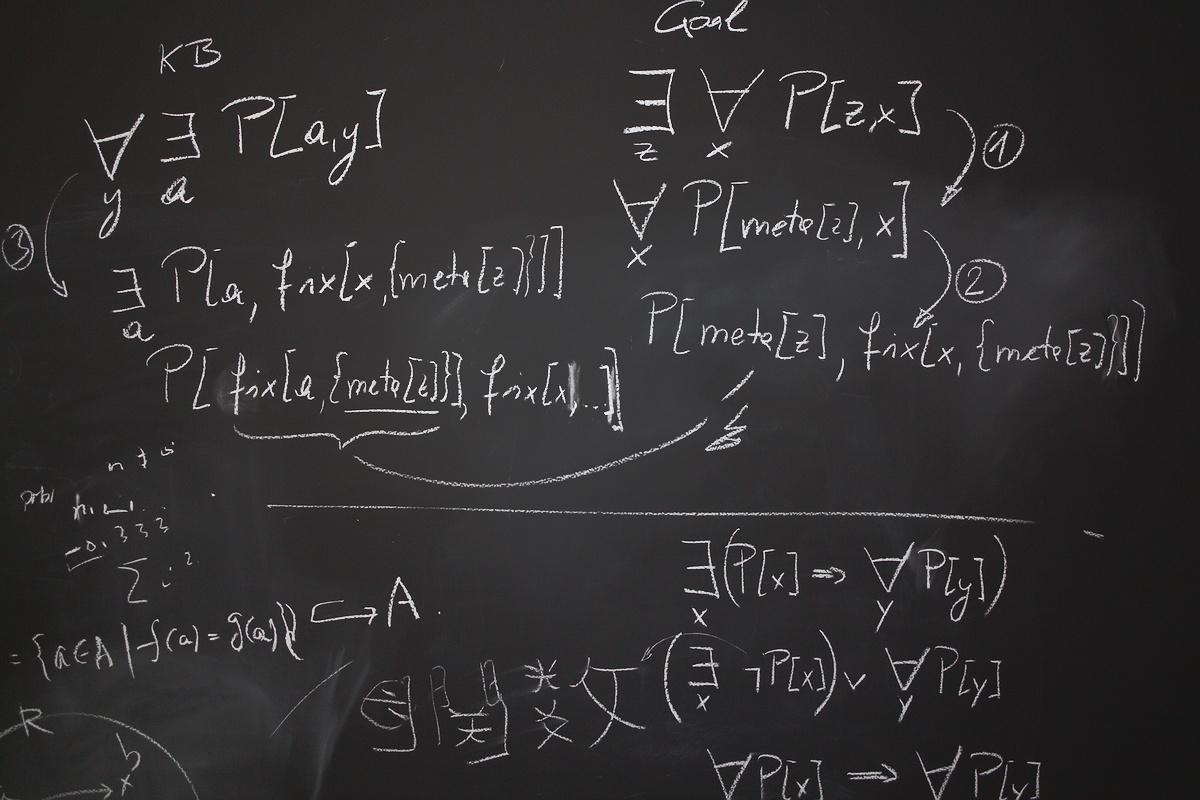Members

Bruno Buchberger: Founding Chairman 1987-1998

Michal Buran

David Cerna

Zoltán Kovács: joint PostDoc GeoGebra+RISC

Teimuraz Kutsia

Nikolaj Popov

Markus Rosenkranz

Wolfgang Schreiner: Vice Director

Wolfgang Windsteiger

Ongoing Projects
Symbolic Techniques for Quantitative Extensions of Equality [SQUEE]
Software
PρLog (pronounced Pē-rō-log) is an experimental tool that extends logic programming with strategic conditional transformation rules, combining Prolog with ρLog calculus. It deals with term sequences (also called hedges), transforming them by conditional rules. Transformations are nondeterministic and may yield ...
The present prototype version of the Theorema software system is implemented in Mathematica . The system consists of a general higher-order predicate logic prover and a collection of special provers that call each other depending on the particular proof situations. ...
Publications
2025
Higher-Order Pattern Unification Modulo Similarity Relations
Besik Dundua, Temur Kutsia
Technical report no. 25-03 in RISC Report Series, Research Institute for Symbolic Computation (RISC), Johannes Kepler University Linz, Austria. ISSN 2791-4267 (online). February 2025. Licensed under CC BY 4.0 International. [doi] [pdf]author = {Besik Dundua and Temur Kutsia},
title = {{Higher-Order Pattern Unification Modulo Similarity Relations}},
language = {english},
abstract = {The combination of higher-order theories and fuzzy logic can be useful in decision-making tasks that involve reasoning across abstract functions and predicates, where exact matches are often rare or unnecessary. Developing efficient reasoning and computational techniques for such a combined formalism presents a significant challenge. In this paper, we adopt a more straightforward approach aiming at integrating two well-established and computationally well-behaving components: higher-order patterns on one side and fuzzy equivalences expressed through similarity relations based on minimum T-norm on the other. We propose a unification algorithm for higher-order patterns modulo these similarity relations and prove its termination, soundness, and completeness. This unification problem, like its crisp counterpart, is unitary. The algorithm computes the most general unifier with the highest degree of approximation when the given terms are unifiable.},
number = {25-03},
year = {2025},
month = {February},
keywords = {Unification, higher-order patterns, fuzzy similarity relations},
length = {20},
license = {CC BY 4.0 International},
type = {RISC Report Series},
institution = {Research Institute for Symbolic Computation (RISC), Johannes Kepler University Linz},
address = {Altenberger Straße 69, 4040 Linz, Austria},
issn = {2791-4267 (online)}
}
Semantics-Based Rapid Prototyping of a Subset of SQL
Wolfgang Schreiner, William Steingartner
Technical report no. 25-02 in RISC Report Series, Research Institute for Symbolic Computation (RISC), Johannes Kepler University Linz, Austria. ISSN 2791-4267 (online). February 2025. Licensed under CC BY 4.0 International. [doi] [pdf]author = {Wolfgang Schreiner and William Steingartner},
title = {{Semantics-Based Rapid Prototyping of a Subset of SQL}},
language = {english},
abstract = {This report documents the application of our semantics-based language generator SLANG to developing a rapid prototype of a non-trivial domain-specific language, a substantial subset of the Structured Query Language SQL that we have named SubSQL. After developing a mathematical/logical formulation of the language’s abstract syntax, formal type system, and denotational semantics, we have translated this formulation into a SLANG specification from which the SLANG software generates Java code that implements a parser, a printer, a type-checker, and an executor of the language. This implementation is based on several manually created Java classes that implement the mathematical domains and operations used in the formalization, a simple persistent database, and a high-level application programming interface that allows to execute complete SubSQL scripts from file or individual SubSQL commands within Java programs. The results represent a blueprint for the semantics-based development of other domain-specific languages of similar complexity.},
number = {25-02},
year = {2025},
month = {February},
keywords = {formal semantics of programming languages, domain specific languages, rapid prototyping, interpreters},
sponsor = {Aktion Österreich–Slowakei project 2024-05-15-001, KEGA project 030TUKE-4/2023},
length = {179},
license = {CC BY 4.0 International},
type = {RISC Report Series},
institution = {Research Institute for Symbolic Computation (RISC), Johannes Kepler University Linz},
address = {Altenberger Straße 69, 4040 Linz, Austria},
issn = {2791-4267 (online)}
}
2024
Proximity-based matching with arbitrary T-norms
Maximilian Donnermair
RISC, Johannes Kepler University Linz. Bachelor Thesis. 2024. [pdf]author = {Maximilian Donnermair},
title = {{Proximity-based matching with arbitrary T-norms}},
language = {english},
year = {2024},
translation = {0},
institution = {RISC, Johannes Kepler University Linz},
length = {38}
}
A Formalization of the General Theory of Quaternions
Thaynara Arielly de Lima, André Luiz Galdino, Bruno Berto de Oliveira Ribeiro, and Mauricio Ayala-Rincón
In: Leibniz International Proceedings in Informatics (LIPIcs), Yves Bertot, Temur Kutsia, and Michael Norrish (ed.), pp. 11:1-11:18. 2024. ISSN 1868-8969.author = {Thaynara Arielly de Lima and André Luiz Galdino and Bruno Berto de Oliveira Ribeiro and and Mauricio Ayala-Rincón},
title = {{A Formalization of the General Theory of Quaternions}},
booktitle = {{Leibniz International Proceedings in Informatics (LIPIcs)}},
language = {english},
pages = {11:1--11:18},
isbn_issn = {ISSN 1868-8969},
year = {2024},
editor = {Yves Bertot and Temur Kutsia and and Michael Norrish},
refereed = {yes},
length = {18}
}
Science and Meditation: Creating the Future (English Translation of "Wissenschaft und Meditation")
Bruno Buchberger
1st edition, 2024. Amazon, 979-8332230837.author = {Bruno Buchberger},
title = {{Science and Meditation: Creating the Future (English Translation of "Wissenschaft und Meditation")}},
language = {english},
publisher = {Amazon},
isbn_issn = { 979-8332230837},
year = {2024},
edition = {1st},
translation = {0},
length = {153}
}
Equational Anti-unification over Absorption Theories
Mauricio Ayala-Rincón, David M. Cerna, Andres Felipe Gonzalez Barragan, Temur Kutsia
In: Automated Reasoning - 12th International Joint Conference, IJCAR 2024, Nancy, France, July 3-6, 2024, Proceedings, Christoph Benzmüller, Marijn J. H. Heule, Renate A. Schmidt (ed.), Lecture Notes in Artificial Intelligence 14740, pp. 317-337. 2024. Springer, ISBN 978-3-031-63500-7. [doi]author = {Mauricio Ayala-Rincón and David M. Cerna and Andres Felipe Gonzalez Barragan and Temur Kutsia},
title = {{Equational Anti-unification over Absorption Theories}},
booktitle = {{Automated Reasoning - 12th International Joint Conference, IJCAR 2024, Nancy, France, July 3-6, 2024, Proceedings}},
language = {english},
series = {Lecture Notes in Artificial Intelligence},
volume = {14740},
pages = {317--337},
publisher = {Springer},
isbn_issn = {ISBN 978-3-031-63500-7},
year = {2024},
editor = {Christoph Benzmüller and Marijn J. H. Heule and Renate A. Schmidt},
refereed = {yes},
length = {21},
url = {https://doi.org/10.1007/978-3-031-63501-4_17}
}
A Formalization of the General Theory of Quaternions
de Lima Thaynara Arielly, Galdino André Luiz, de Oliveira Ribeiro Bruno Berto, Ayala-Rincón Mauricio Bertot, Yves and Kutsia, Temur and Norrish, Michael
In: 15th International Conference on Interactive Theorem Proving (ITP 2024), Bertot, Yves and Kutsia, Temur and Norrish, Michael (ed.), Leibniz International Proceedings in Informatics (LIPIcs) 309, pp. 11:1-11:18. 2024. Dagstuhl, Germany, ISBN 978-3-95977-337-9 ISSN 1868-8969. [url]author = {de Lima Thaynara Arielly and Galdino André Luiz and de Oliveira Ribeiro Bruno Berto and Ayala-Rincón Mauricio Bertot and Yves and Kutsia and Temur and Norrish and Michael},
title = {{A Formalization of the General Theory of Quaternions}},
booktitle = {{15th International Conference on Interactive Theorem Proving (ITP 2024)}},
language = {english},
series = {Leibniz International Proceedings in Informatics (LIPIcs)},
volume = {309},
pages = {11:1--11:18},
address = {Dagstuhl, Germany},
isbn_issn = {ISBN 978-3-95977-337-9 ISSN 1868-8969},
year = {2024},
annote = {Keywords: Theory of quaternions, Hamilton’s quaternions, Algebraic formalizations, PVS},
editor = {Bertot and Yves and Kutsia and Temur and Norrish and Michael},
refereed = {yes},
length = {0},
url = {https://drops.dagstuhl.de/entities/document/10.4230/LIPIcs.ITP.2024.11}
}
Certification of Tail Recursive Bubble-Sort in Theorema and Coq
I. Dramnesc, T. Jebelean, S. Stratulat
In: LPAR 2024 Complementary Volume, N. Bjørner, M. Heule, A. Voronkov (ed.), Kalpa Publications in Computing 18, pp. 53-68. 2024. EasyChair, ISSN 2515-1762. [url]author = {I. Dramnesc and T. Jebelean and S. Stratulat},
title = {{Certification of Tail Recursive Bubble-Sort in Theorema and Coq}},
booktitle = {{LPAR 2024 Complementary Volume}},
language = {English},
series = {Kalpa Publications in Computing},
volume = {18},
pages = {53--68},
publisher = {EasyChair},
isbn_issn = { ISSN 2515-1762},
year = {2024},
editor = {N. Bjørner and M. Heule and A. Voronkov},
refereed = {yes},
length = {16},
url = {/publications/paper/tbwq}
}
Certification of Sorting Algorithms Using Theorema and Coq
I. Dramnesc, T. Jebelean, S. Stratulat
In: SCSS 2024, Symbolic Computation in Software Science , S. M. Watt, T. Ida (ed.), Lecture Notes in Artificial Intelligence 14991, pp. 38-56. 2024. Springer, ISBN 978-3-031-69041-9.author = {I. Dramnesc and T. Jebelean and S. Stratulat},
title = {{Certification of Sorting Algorithms Using Theorema and Coq}},
booktitle = {{SCSS 2024, Symbolic Computation in Software Science }},
language = {English},
series = {Lecture Notes in Artificial Intelligence},
volume = {14991},
pages = {38--56},
publisher = {Springer},
isbn_issn = {ISBN 978-3-031-69041-9},
year = {2024},
editor = {S. M. Watt and T. Ida},
refereed = {yes},
length = {19}
}
Solving Quantitative Equations
G. Ehling, T. Kutsia
Technical report no. 24-03 in RISC Report Series, Research Institute for Symbolic Computation (RISC), Johannes Kepler University Linz, Austria. ISSN 2791-4267 (online). April 2024. Licensed under CC BY 4.0 International. [doi] [pdf]author = {G. Ehling and T. Kutsia},
title = {{Solving Quantitative Equations}},
language = {english},
abstract = {Quantitative equational reasoning provides a framework that extends equality to an abstract notion of proximity by endowing equations with an element of a quantale. In this paper, we discuss the unification problem for a special class of shallow subterm-collapse-free quantitative equational theories. We outline rule-based algorithms for solving such equational unification problems over generic as well as idempotent Lawvereian quantales and study their properties.},
number = {24-03},
year = {2024},
month = {April},
keywords = {quantitative equational reasoning, Lawvereian quantales, equational unification},
length = {23},
license = {CC BY 4.0 International},
type = {RISC Report Series},
institution = {Research Institute for Symbolic Computation (RISC), Johannes Kepler University Linz},
address = {Altenberger Straße 69, 4040 Linz, Austria},
issn = {2791-4267 (online)}
}
Solving Quantitative Equations
Georg Ehling, Temur Kutsia
In: Automated Reasoning - 12th International Joint Conference, IJCAR 2024, Nancy, France, July 3-6, 2024, Proceedings, Christoph Benzmüller, Marijn J. H. Heule, Renate A. Schmidt (ed.), Lecture Notes in Artificial Intelligence 14740, pp. 381-400. 2024. Springer, ISBN 978-3-031-63500-7. [doi]author = {Georg Ehling and Temur Kutsia},
title = {{Solving Quantitative Equations}},
booktitle = {{Automated Reasoning - 12th International Joint Conference, IJCAR 2024, Nancy, France, July 3-6, 2024, Proceedings}},
language = {english},
series = {Lecture Notes in Artificial Intelligence},
volume = {14740},
pages = {381--400},
publisher = {Springer},
isbn_issn = {ISBN 978-3-031-63500-7},
year = {2024},
editor = {Christoph Benzmüller and Marijn J. H. Heule and Renate A. Schmidt},
refereed = {yes},
length = {20},
url = {https://doi.org/10.1007/978-3-031-63501-4_20}
}
A Natural-style Prover in Theorema Using Sequent Calculus with Unit Propagation
T. Jebelean
In: LPAR 2024 Complementary Volume, N. Bjørner, M. Heule, A. Voronkov (ed.), Kalpa Publications in Computing 18, pp. 107-116. 2024. EasyChair, ISSN 2515-1762. [url]author = {T. Jebelean},
title = {{A Natural-style Prover in Theorema Using Sequent Calculus with Unit Propagation}},
booktitle = {{LPAR 2024 Complementary Volume}},
language = {English},
series = {Kalpa Publications in Computing},
volume = {18},
pages = {107--116},
publisher = {EasyChair},
isbn_issn = { ISSN 2515-1762},
year = {2024},
editor = {N. Bjørner and M. Heule and A. Voronkov},
refereed = {yes},
length = {10},
url = {/publications/paper/n11t}
}
Certified First-Order AC-Unification and Applications
Mauricio Ayala-Rincón, Maribel Fernández, Gabriel Ferreira Silva, Temur Kutsia, Daniele Nantes-Sobrinho
Journal of Automated Reasoning 68(4), pp. 25:1-25:48. 2024. ISSN 0168-7433. [doi] [pdf]author = {Mauricio Ayala-Rincón and Maribel Fernández and Gabriel Ferreira Silva and Temur Kutsia and Daniele Nantes-Sobrinho},
title = {{Certified First-Order AC-Unification and Applications}},
language = {english},
journal = {Journal of Automated Reasoning},
volume = {68},
number = {4},
pages = {25:1--25:48},
isbn_issn = {ISSN 0168-7433},
year = {2024},
refereed = {yes},
length = {0},
url = {https://doi.org/10.1007/s10817-024-09714-5}
}
Gray-Box Proving in Theorema
W. Windsteiger
Technical report no. 24-07 in RISC Report Series, Research Institute for Symbolic Computation (RISC), Johannes Kepler University Linz, Austria. ISSN 2791-4267 (online). July 2024. Licensed under CC BY 4.0 International. [doi] [pdf]author = {W. Windsteiger},
title = {{Gray-Box Proving in Theorema}},
language = {english},
abstract = {Many theorems in mathematics have the form of an implication, an equivalence, or an equality, and in the standard prover in the Theorema system such formulas are handled by rewriting. Definitions ofnew function- or predicate symbols are yet another example of formulas that require rewriting in their treatment inthe Theorema system. Both theorems and definitions in practice often carry conditions under which they are valid. Rewriting is, thus, only valid in cases where all side-conditions are met. On the other hand, many of these side-conditions are trivial and when presenting a proof we do not want to distract the reader with lengthy derivations that justify the side-conditions. The goal of this paper is to present the design and implementation of a mechanism that efficiently checks side-conditionsin rewriting while preserving the readability and the explanatory power of a mathematical proof, which has always been of centralinterest in the development of the Theorema system.},
number = {24-07},
year = {2024},
month = {July},
keywords = {Theorema, Automated Theorem Proving, Conditional Rewriting, Mathematica},
length = {8},
license = {CC BY 4.0 International},
type = {RISC Report Series},
institution = {Research Institute for Symbolic Computation (RISC), Johannes Kepler University Linz},
address = {Altenberger Straße 69, 4040 Linz, Austria},
issn = {2791-4267 (online)}
}
Gray-Box Proving in Theorema
Windsteiger Wolfgang
In: 26th International Symposium on Symbolic and Numeric Algorithms for Scientific Computing (SYNASC 2024), Fairouz Kamareddine, Mircea Marin (ed.), pp. 82-89. 2024. IEEE Computer Society, Los Alamitos, CA, USA, ISBN: 979-8-3315-3283-3. [doi]author = {Windsteiger Wolfgang},
title = {{Gray-Box Proving in Theorema }},
booktitle = {{26th International Symposium on Symbolic and Numeric Algorithms for Scientific Computing (SYNASC 2024)}},
language = {english},
abstract = {Many theorems in mathematics have the form of an implication, an equivalence, or an equality, and in the standard prover in the Theorema system such formulas are handled by rewriting. Definitions of new function- or predicate symbols are yet another example of formulas that require rewriting in their treatment in the Theorema system. Both theorems and definitions in practice often carry conditions under which they are valid. Rewriting is, thus, only valid in cases where all side-conditions are met. On the other hand, many of these side-conditions are trivial and when presenting a proof we do not want to distract the reader with lengthy derivations that justify the side-conditions. The goal of this paper is to present the design and implementation of a mechanism that efficiently checks side-conditions in rewriting while preserving the readability and the explanatory power of a mathematical proof, which has always been of central interest in the development of the Theorema system.},
pages = {82--89},
publisher = {IEEE Computer Society},
address = {Los Alamitos, CA, USA},
isbn_issn = {ISBN: 979-8-3315-3283-3},
year = {2024},
editor = {Fairouz Kamareddine and Mircea Marin},
refereed = {yes},
length = {8},
url = {https://doi.org/10.1109/SYNASC65383.2024.00026}
}
2023
Is ChatGPT Smarter Than Master’s Applicants?
Bruno Buchberger
Technical report no. 23-04 in RISC Report Series, Research Institute for Symbolic Computation (RISC), Johannes Kepler University Linz, Austria. ISSN 2791-4267 (online). January 2023. Licensed under CC BY 4.0 International. [doi] [pdf]author = {Bruno Buchberger},
title = {{Is ChatGPT Smarter Than Master’s Applicants?}},
language = {English},
abstract = {During the selection procedure for a particular informatics fellowship program sponsored by Upper Austrian companies, I ask the applicants a couple of simple technical questions about programming, etc., in a Zoom meeting. I put the same questions to the dialogue system ChatGPT, [ChatGPT]. The result surprised me: Nearly all answers of ChatGPT were totally correct and nicely explained. Also, in the dialogues to clarify some critical points in the answers, the explanations by ChatGPT were amazingly clear and goal-oriented.In comparison: I tried out the same questions in the personal Zoom interviews with approximately 30 applicants from five countries. Only the top three candidates (with a GPA of 1.0, i.e., the highest possible GPA in their bachelor’s study) performed approximately equally well in the interview. All the others performed (far) worse than ChatGPT. And, of course, all answers from ChatGPT came within 1 to 10 seconds, whereas most of the human applicants' answers needed lengthy and arduous dialogues.I am particularly impressed by the ability of ChatGPT to extract meaningful and well-structured programs from problem specifications in natural language. In this experiment, I also added some questions that ask for proofs for simple statements in natural language, which I do not ask in the student's interviews. The performance of ChatGPT was quite impressive as far as formalization and propositional logic are concerned. In examples where predicate logic reasoning is necessary, the ChatGPT answers are not (yet?) perfect. I am pleased to see that ChatGPT tries to present the proofs in a “natural style” This is something that I had as one of my main goals when I initiated the Theorema project in 1995. I think we already achieved this in the early stage of Theorema, and we performed this slightly better and more systematically than ChatGPT does.I also tried to develop a natural language input facility for Theorema in 2017, i.e., a tool to formalize natural language statements in predicate logic. However, I could not continue this research for a couple of reasons. Now I see that ChatGPT achieved this goal. Thus, I think that the following combination of methods could result in a significant leap forward:- the “natural style” proving methods that we developed within Theorema (for the automated generation of programs from specifications, the automated verification of programs in the frame of knowledge, and the automated proof of theorems in theories), in particular, my “Lazy Thinking Method” for algorithm synthesis from specifications- and the natural language formalization techniques of ChatGPT.I propose this as a research project topic and invite colleagues and students to contact me and join me in this effort: Buchberger.bruno@gmail.com.},
number = {23-04},
year = {2023},
month = {January},
keywords = {ChatGPT, automated programming, program synthesis, automated proving, formalization of natural language, master's screening},
length = {30},
license = {CC BY 4.0 International},
type = {RISC Report Series},
institution = {Research Institute for Symbolic Computation (RISC), Johannes Kepler University Linz},
address = {Altenberger Straße 69, 4040 Linz, Austria},
issn = {2791-4267 (online)}
}
Automated Programming, Symbolic computation, Machine Learning: My Personal View
Bruno Buchberger
Ann. Math. Artif. Intell. 91(5), pp. 569-589. 2023. 1012-2443.author = {Bruno Buchberger},
title = {{Automated Programming, Symbolic computation, Machine Learning: My Personal View}},
language = {english},
journal = {Ann. Math. Artif. Intell.},
volume = {91},
number = {5},
pages = {569--589},
isbn_issn = {1012-2443},
year = {2023},
refereed = {yes},
length = {21}
}
International Young Talents Hotspot Austria
Bruno Buchberger
In: Ideen, die gehen!, W. Schüssel, G. Kneifel (ed.), pp. 37-39. 2023. Edition Kleine Zeitung, 20234.author = {Bruno Buchberger},
title = {{International Young Talents Hotspot Austria}},
booktitle = {{Ideen, die gehen!}},
language = {english},
pages = {37--39},
publisher = {Edition Kleine Zeitung},
isbn_issn = {20234},
year = {2023},
editor = {W. Schüssel and G. Kneifel},
refereed = {no},
length = {3}
}
Wissenschaft und Meditation: Auf dem Weg zur bewussten Naturgesellschaft
Bruno Buchberger
1st edition, December 2023. Amazon, 979-8868299117.author = {Bruno Buchberger},
title = {{Wissenschaft und Meditation: Auf dem Weg zur bewussten Naturgesellschaft}},
language = {german},
publisher = {Amazon},
isbn_issn = {979-8868299117},
year = {2023},
month = {December},
edition = {1st},
translation = {0},
length = {184}
}
Anti-unification and Generalization: a Survey
David Cerna, Temur Kutsia
In: Proceedings of IJCAI 2023 - 32nd International Joint Conference on Artifical Intelligence, Edith Elkind (ed.), pp. 6563-6573. 2023. ijcai.org, ISBN 978-1-956792-03-4 . [doi]author = {David Cerna and Temur Kutsia},
title = {{Anti-unification and Generalization: a Survey}},
booktitle = {{Proceedings of IJCAI 2023 - 32nd International Joint Conference on Artifical Intelligence}},
language = {english},
pages = {6563--6573},
publisher = {ijcai.org},
isbn_issn = {ISBN 978-1-956792-03-4 },
year = {2023},
editor = {Edith Elkind},
refereed = {yes},
length = {11},
url = {https://doi.org/10.24963/ijcai.2023/736}
}



